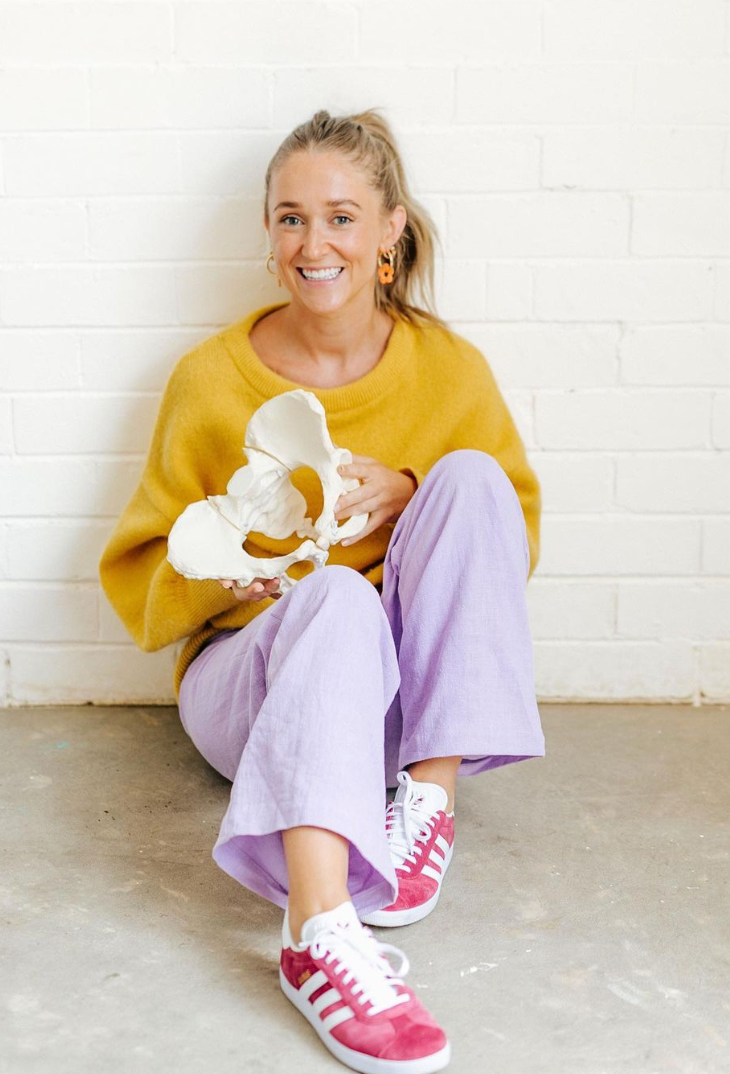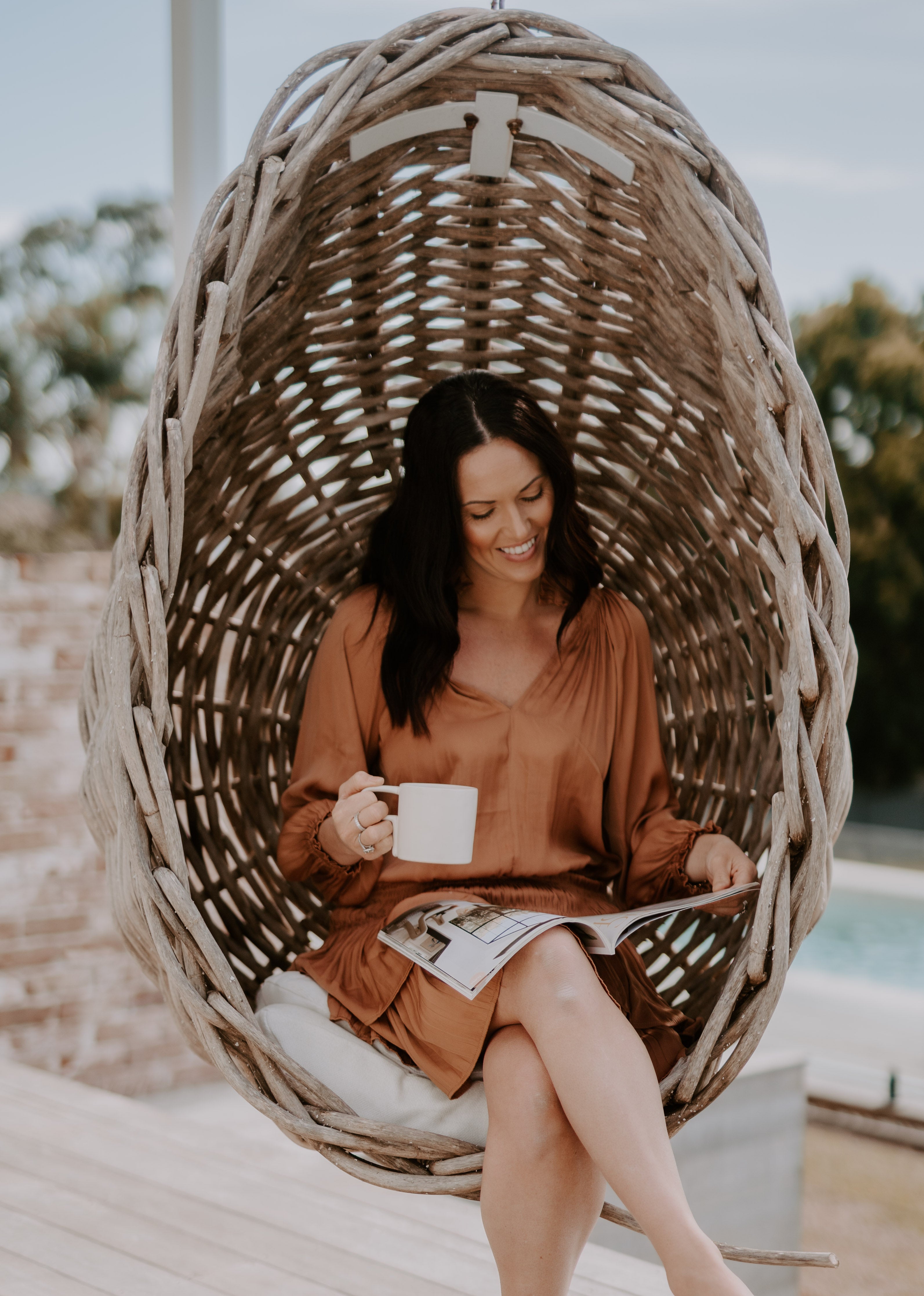Be Educated, Empowered & Excited To Birth: An Interview with Erin Phibbs

Erin is a midwife, childbirth educator and mum of 4! She teaches online and face-to-face and if you’re not already following her on the gram, her posts are there to educate and empower you. I really love Erin’s in-depth knowledge on all things pregnancy, birth and postpartum.
Enjoy this interview with the incredible Erin on her own birth experiences, tips on creating your own birth space, morning sickness and so much more!
I love your bio which states: Be EDUCATED, EMPOWERED & EXCITED to birth. I personally feel the same about birth and want other women to feel the same. Why do you think there’s such a disconnect with some women around empowerment and giving birth?
I think that the media and modern culture has adversely influenced the way people engage with pregnancy and childbirth. The portrayal of normal, physiological birth is missing in media. Movies and television more often than not, portray childbirth dramatically and perpetuate the medicalisation of what is actually a very normal life event. We are raised to believe that childbirth is a risky and painful experience, rather than understanding our body’s innate ability and power to grow and birth babies. When we understand the process of labour and birth, we can regain our trust in our body’s ability and feel empowered to birth, rather than fearing it.
You’ve given birth four times. How did they vary in experience and in terms of feeling empowered?
All four of my birthing experiences have been very different to one another. The only spontaneous labour I experienced was with my firstborn, then subsequently my second, third and fourth labours were induced.
I wouldn’t say that I went into my first labour and birth experience feeling empowered. I was definitely excited and didn’t fear the process, but hindsight proved that I hadn’t explored my options and I wasn’t clear about where I stood on different scenarios, should they play out. In turn, my labour and birth didn’t go at all how I had hoped. Hindsight is a wonderful thing and the beauty of a second pregnancy and birth is that you get a second chance. I did a lot of self-reflection and debriefing during my second pregnancy and decided, firmly and with great amounts of self-belief, that I was going to have a vaginal birth. My first son had been born with forceps and I wanted to avoid another ‘assisted birth’.
My second labour was induced by way of ‘breaking of my waters’ and a hormone drip. Despite inductions often getting a bad rap, I headed in to the experience positive, empowered by my decisions and firmly believing that this birth was going to be different. And different it was. I had a very positive and enjoyable induction that led to a healing unassisted vaginal birth.
While each induction thereafter was different, the birthing experience remained the same. My second, third and fourth labours were incredibly empowering and each birth went exactly how I hoped.
The recipe for an empowered labour and birth is: Knowing your options, a positive mindset, movement, privacy and TRUST.
How do you manage being a mum of four and running a successful business as a Childbirth Educator?
I won’t sugar coat it, it’s tough. I always feel like I’m spinning too many plates and sometimes some of them slow or stop spinning altogether. I have learned some hard lessons about business and what it takes to be your own boss. I do most of my work at ungodly hours, after all of my babies are asleep and I carve out time on weeknight evenings and weekends, for private classes. Childbirth education isn’t something I never saw myself doing but now that I’m here I can’t imagine ever not making time to do it.
Tips on making your own birth space. How did you make your birth space special?
Regardless of where you intend to birth, the elements that make up a positive and productive birth space remain the same. Think dim lighting, LED candles, fairylights etc. Music or meditation tracks playing and aromatherapy. Try to limit the people within your space and choose, those that are welcome, wisely. You should feel safe and unobserved.
Is a CTG always necessary?
Not always. Like with any other test, procedure or intervention, CTG monitoring is a recommendation and it will be up to you to accept or decline the monitoring. A CTG may be recommended at different times throughout your pregnancy and depending where you birth and under what circumstances, CTG monitoring may be recommended during labour.
Does perineal massage prevent tearing? When should you start?
Perineal massage can reduce the risk and severity of perineal tearing during childbirth. It may not prevent tears from occurring but it has been proven to reduce the severity of perineal trauma. I recommend that women commence perineal massage from around 34-35 weeks gestation, after discussing it with their chosen care provider.
Did you suffer from morning sickness when pregnant?
Each of my pregnancies have been different in terms of ‘sickness’. I have never suffered from vomiting during pregnancy but I did have about 16 weeks of all-day nausea during my ‘girl’ pregnancies. When pregnant with my sons, I felt nauseated in waves throughout the first trimester but it wasn’t as severe and I had a lot more energy.
Did you drink red raspberry leaf tea or enjoy any other natural ways to prepare for labour such as eating medjool dates?
I have used red raspberry leaf tea during each of my pregnancies. I’m not much of a ‘hot drink’ kind of gal so I’ve tried it hot, iced and even used the raspberry leaf capsules that you can buy. I encourage clients to incorporate tea as part of a slow evening wind-down, especially in the third trimester.
I consumed medjool dates (LOTS of them) towards the end of my most recent pregnancy. I was booked in to have an induction and while I was more than happy to have another induction a tiny part of me hoped that I would get to experience spontaneous labour again. I think that incorporating safe and evidence-based recommendations that are shown to positively affect labour and birth is a no-brainer. If it’s safe for mum and safe for baby, it’s worth trying.





Comments